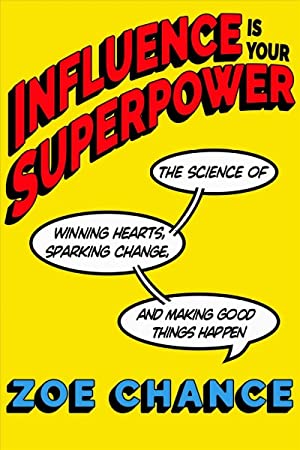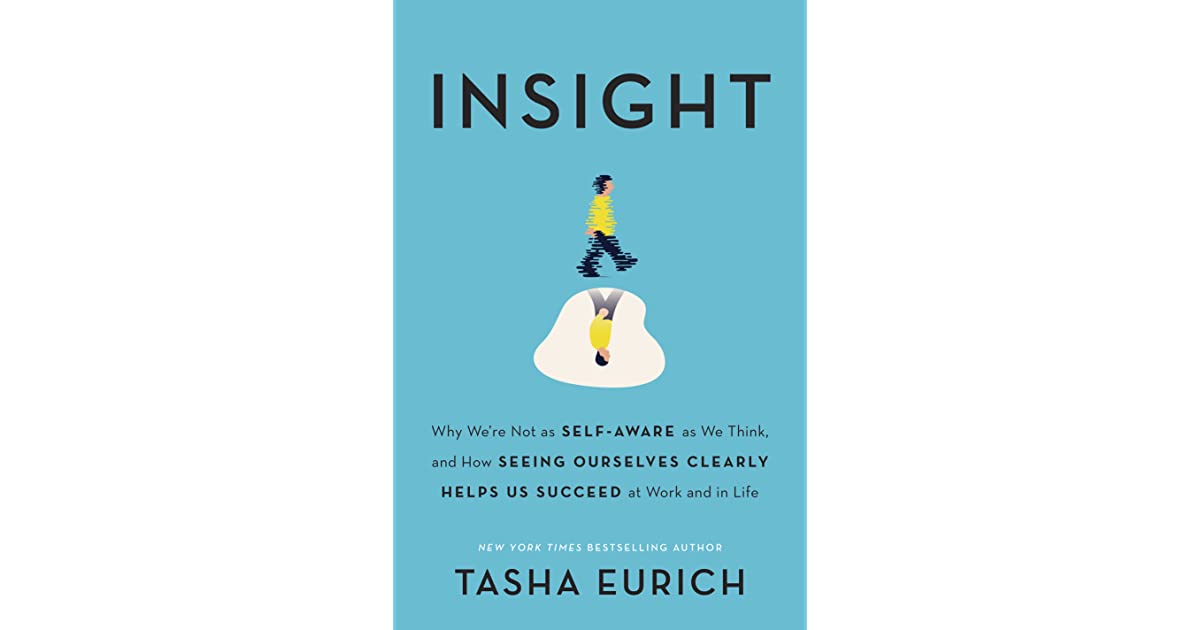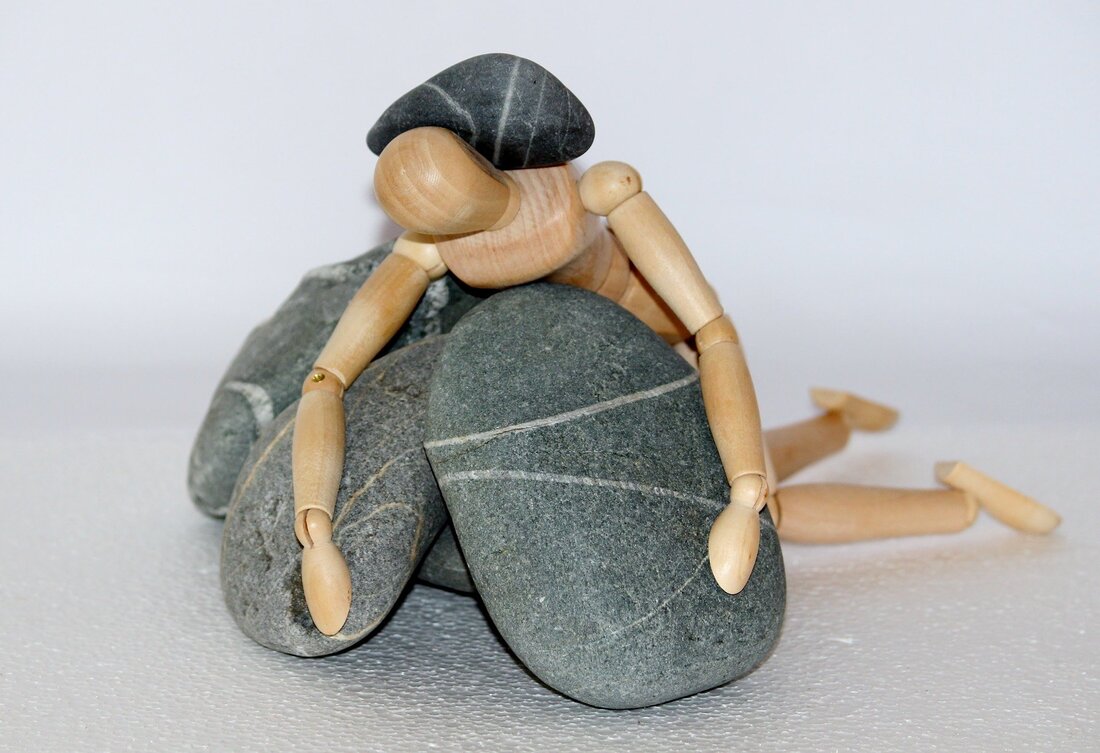 I teach courses in logic on a regular basis. Most any logic course presumes that reasoning is sometimes fallacious but that it is possible to improve your reasoning ability and as a result improve your decision making as well. In addition, by understanding how to evaluate arguments you can not only become better at spotting defective ones but also better at constructing them for yourself. In other words, studying logic will improve your power to influence. As it turns out, that view is wrong. Perhaps a better way to put it is that it’s an incomplete picture of our thinking and what you need to focus on to improve your influence. To learn what else you need to know, I highly recommend Zoe Chance’s new book Influence is Your Superpower: The Science of Winning Hearts, Sparking Change and Making Good Things Happen. As a logic professor, there are several points in the book that resonated with me that I want to focus on particularly in the second chapter titled Influence Doesn’t Work the Way You Think. She discusses Daniel Kahneman’s idea of two systems of thinking from his book Thinking Fast and Slow which he describes as “System 1” and “System 2.” She helpfully relabels these as the “Gator” and the “Judge.” The Gator “is responsible for every cognitive process that’s quick and requires negligible attention,” including things like emotions, quick judgments, and pattern recognition as well as any habitual behaviors. The label comes from the observation that much of a gator’s behavior is “habitual and relatively effortless.” That describes much of our thinking as well. The Judge “is responsible for every cognitive process requiring consternation and effort.” Things like planning, calculating, and the work my students do to solve proofs in symbolic logic. This is how we mostly view most of our thinking. We are sifting through facts and evidence and making judgments. What’s interesting is that while we tend to think that most of our decisions involve deliberate, rational thinking which would be done by the Judge, in reality, the Gator is responsible for much of our behavior and thinking, perhaps “up to 95 percent of our decisions and behaviors.” Understanding this point is key to understanding our own thinking and how to improve it. It’s also a crucial insight to improve your ability to influence others. Why would you want to do that? Well, as Daniel Pink pointed out in his book To Sell is Human, we are all in sales. Think about how much of what you do involves persuading and convincing others in some way. I know as a teacher I am trying to persuade my students to value the class material and learn it. In other words, I’m trying to influence them. So, if most of our thinking is done by the gator below the level of our “rational mind” does that mean influence amounts to manipulation? Not at all. Of course, some people do try to influence by using manipulation and she discusses how to deal with these tactics in her chapter titled Defense Against the Dark Arts. If our thinking is done by gators and judges then the manipulators are sharks “willing to bully, cheat, manipulate, and deceive people to get what they want.” But, that is not what she advocates in the book. Instead, she offers some simply useful tools to improve your ability to influence while building relationships with people. A good example of this is in her chapter on Charisma where she outlines two paradoxes of charisma. Trying to be charismatic has the opposite effect and the best way to attract other people’s attention is by giving them yours. An important key to influence is not manipulating people but connecting with them. The same goes for negotiations which most people see as an adversarial process where you’re trying to get something from someone else while keeping as much for yourself as possible. But, in reality, the best negotiations are collaborative and allow all parties to gain something. Doing this successfully involves asking the “Magic Question” which she describes as her favorite influence strategy. It’s one of my favorite from the book too. The question? “What would it take…?” Starting your question this way naturally invites the other person to think in terms of solving a problem together. It fits nicely with a point she makes earlier in the book. If you want “to become more influential just ask. Ask more often, ask more directly, and ask for more.” The worst outcome is that the other person will say no. But, you’ll be surprised how often people will say yes. Or at least meet you halfway. Sometimes, their answer will even exceed your expectations. But, you’ll never know until you ask. Most logic textbooks define the subject of logic as the science of evaluating arguments. An implicit part of this approach is that there is a distinction between the logical and the psychological. In fact, most logic textbooks will include a reference to the psychological in a chapter on logical fallacies which are mistakes people make in their reasoning process. The implication is that while these psychological tactics may be effective, they should not be used since they violate the principles of good critical thinking. Indeed, some psychological tactics do just that and should not be used. But, Zoe Chance’s book shows us that not all psychological insights are manipulative. To be a good critical thinker, you need to understand how your own thinking works. To have influence you need to understand how to connect with people in a genuine and authentic way. As a professor, her book has given me many useful insights that I will be integrating into my logic and critical thinking courses. As a musical artist, I think I can apply her insights to help my music reach a larger audience. As a human being, who wants to win hearts, spark change and make good things happen, this book will help me unlock my superpower to influence for the better.
Image by Ulrike Mai from Pixabay
The psychologist Martin Seligman helped discover the phenomenon of learned helplessness. As described by Kendra Cherry “Learned helplessness occurs when an animal is repeatedly subjected to an aversive stimulus that it cannot escape. Eventually, the animal will stop trying to avoid the stimulus and behave as if it is utterly helpless to change the situation. Even when opportunities to escape are presented, this learned helplessness will prevent any action.” Originally discovered in studies of animals the findings have been shown to apply to people as well. Recent studies indicate that this helplessness may not be learned but rather an institual response to environmental conditions. In either case, it can be a problem. 
Tasha Eurich’s book titled Insight: Why We're Not as Self Aware as we Think, and How Seeing Ourselves Clearly Helps Us Succeed at Work and in Life is…well the only word for it is “insightful!”
But, achieving insight takes deliberate effort and does not come naturally. As she points out, “In the absence of a committed effort to build self-awareness, the average person makes only meager gains as they grow older.” |
KEVIN J. BROWNEPhilosopher / Educator These blog posts contain links to products on Amazon.com. As an Amazon Associate I earn from qualifying purchases.
Categories
All
Archives
April 2023
|




 RSS Feed
RSS Feed
















